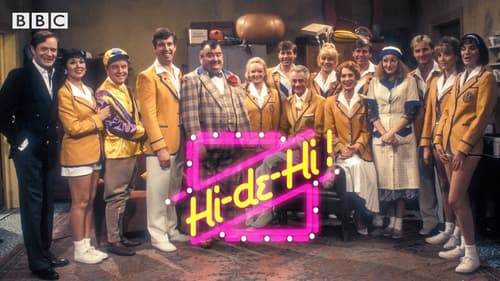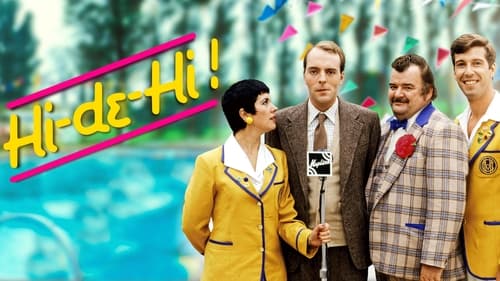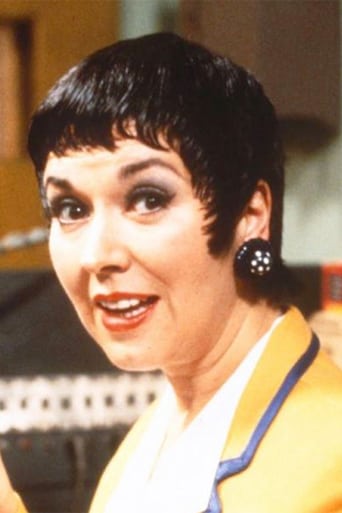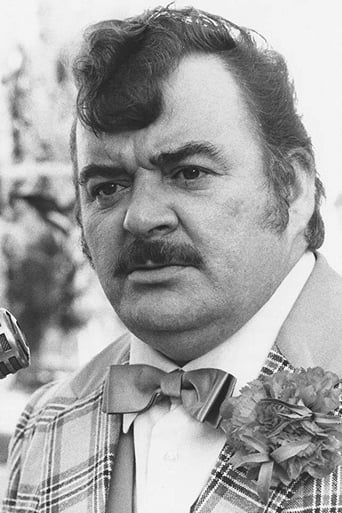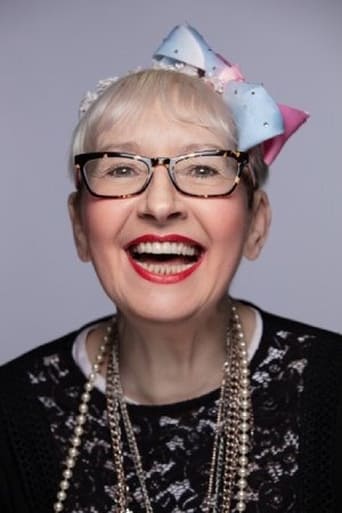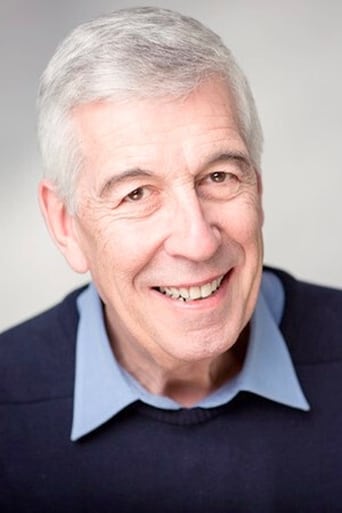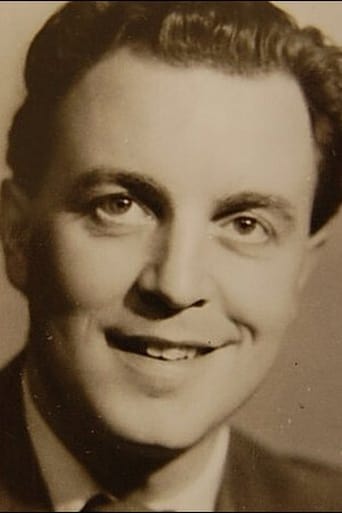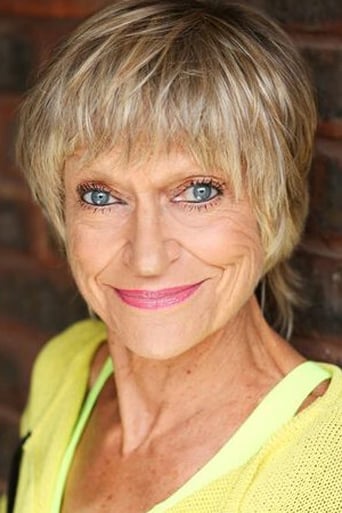Honda Seller
I liked this series. I love British humour.This show is completely silly but hilarious.I knew of a number of the main actors from another series called You Rang M'Lord which is funny too but sadly, youtube only has a few episodes there.I watched the entire Hi de Hi series on youtube which was great.I noticed the writing started to get old in the last few seasons with a lot of repetitive themes. It went especially downhill in the last season which is common with TV series.I was so disappointed that they didn't write a better and more creative ending. Instead, they wrapped it up in a rather hum drum and nonsensical manner.I think a better and more logical happy ending would have been for the rich man who led the camp to somehow have his family take him back into the fold, in spite of his marriage, because they needed him to come and run their farm and amusement park.That way his wife (the Welsh woman who was the best yellow coat around) could have helped run things and the majority of the rest of the staff could have all been given jobs there. This would have been a much better and a very happy and settled ending rather than the half hazard one they wrote.That's my two cents.
TheDreadedNat
For me, this programme epitomises everything that was wrong with the BBC in the 1980s. I'm astonished to find that it rates so highly (7.0), although the mere 300 or so ratings it has garnered clearly reflect that only hardcore fans have bothered visiting this page (can't remember exactly how it was that I ended up here). My parents used to watch this tripe (back then we only had the 3 channels to choose from) and I always considered it an especially cruel and unusual form of torture. Despite consisting of only 6 or 7 episodes per series, due to the BBCs seemingly endless cycle of repeats, it seemed to hardly ever be off the air.To give credit where it's due, many of the actors did a reasonable job; the best they could with such appalling, repetitive material. It is to their discredit, however, that only Simon Cadell had the good sense to get out after they won their BAFTA (how on earth did that happen?), having already seen every joke recycled about 25 times over the course of 5 series. The depths to which it plummeted over the remaining 4 series are probably the main reason David Croft had to create 2 more TV series to provide much-needed employment for the 'stars' of this awful show (by this time, we had satellite TV so no-one was forced to suffer through these the way my generation was forced to suffer through the likes of Hi-de-Hi and 'Allo 'Allo).Hi-de-Hi is typical Croft/Perry fare, in that all the characters are severely dated stereotypes, taking part in poorly-conceived and executed farces that could easily have been written by a drunk comprehensive school drama teacher. I didn't think the 1st series was funny when I was 7 years old and I could barely believe they were still making them when I was 15. Amazing, really, that the BBC saw fit to screen this rubbish alongside such gems as The Young Ones (1982) and The Hitchhiker's Guide to the Galaxy (1981). Its 'popularity' (among a largely captive audience) is testament to the fact that, by the cynical use of 'canned laughter', it is possible to convince my parents' generation that practically anything is funny.
peedee100
This series (at least any episode featuring the late, great Simon Cadell ) was brilliant. As a barman in one of "Billy's Brothels" at the end of the 60s, I experienced many of the antics first hand. What a trip down memory lane! Like all of Perry / Croft sitcoms, all the characters are strong and all have a share of the funny lines. Great acting, great comedy and an accurate representation of what post war Britain was all about before the advent of cheap packaged holidays to the Costa Somethings. Along with "It ain't half hot Mum" and "Dad's Army", this is classic comedy. Brilliantly observed and the larger than life episodes (for example the horse on horse incident) hilariously acted and produced.
SetzersGretsch
Based to some extent on writers, David Croft and Jimmy Perry's, own experiences as Butlins Holiday Camp entertainers in the UK during the same timescale the programme follows, "Hi-De-Hi!" epitomises the 'slapstick, postcard humour" of post-war Britain. Set in the fictitious seaside town of Crimpton-on-Sea, "Hi-De-Hi" chronicles the comedic goings on within the Maplins Holiday Camp - one of many dotted along the British coast owned by the mega-rich, but never seen (on screen) Joe Maplin.Although the actual show began in 1980 with the pilot episode and ran until 1988 when the BBC deemed it too tame for it's cutting edge comedy department, seasons 1-5 focused on 1959 while seasons 6-9 spotlighted 1960 - a time when the old style British Holiday Camp began to fall into decline. During the first 5 seasons, Jeffrey Fairbrother (played brilliantly by the late, great Simon Cadell) was the camp's entertainment manager; a well meaning, yet slightly pensive ex-university professor breaking free of his upper class background and venturing into the "real" world to head his team of entertainment staff who were in stark contrast to his own laid-back personality. From season 6 onwards, Fairbrother was replaced by Clive Dempster (played by David Griffin when Cadell quit the show at the height of it's popularity), an ex-RAF war hero who, in many ways, was similar to Cadell's character in background, but more a scoundrel than a gentleman.However, the real stars of "Hi-De-Hi" throughout the nine seasons were Ted Bovis (played superbly by Paul Shane), a stereotypical working class, ale drinking, bawdy comic - someone who could never resist an opportunity to fiddle the campers; Gladys Pugh (played by Ruth Madoc who's currently experiencing a career comeback with appearances in the hit BBC Comedy, "Little Britain"), chief Yellowcoat (what the entertainment staff were called because of their bright yellow jackets) and sports organiser - but more importantly, the one person who saved Jeffrey Fairbrother and Clive Dempster from embarrassment by covering up their inexperience in running a holiday camp; Peggy Ollerenshaw (Su Pollard), the slightly dopey, yet lovable lowly chalet maid with a burning ambition to become a Yellowcoat, and Spike Dixon (Jeffrey Holland), Ted's innocent protégé learning more about 'show business' than he hoped for.As usual with a Croft & Perry production, the assembled cast of characters were a bunch of misfits played superbly by the actors involved. Mr. Partridge (played by the late Leslie Dwyer, who was in his 70's by the time he left the show), the alcoholic child-hating children's entertainer; Fred Quilly (Felix Bowness), a former champion jockey with a dubious past; Yvonne & Barry Stuart-Hargreaves (Dianne Holland & Barry Howard), the snobbish former ballroom dancing champions who were in the twilight of their careers; and Sylvia and Betty (Nikki Kelly and Rikki Howard), the two main girl Yellowcoats who were always looking for the type of fun Joe Maplin would never allow in one of his camps."Hi-De-Hi" typified the slapstick era of the late 50s with it's saucy and, to a certain degree, vulgar "tongue-in-cheek" humour (jokes about people sitting on toilets and anecdotes about 'women with big knockers' were the order of the day). But despite it's whiff of "Carry On" funniness, it was always so innocent and became something of recommended family viewing back in the 80's. Of course, the critics of the show remarked that the show had outstayed it's welcome by a good couple of years, but I disagree. While the early seasons focused mainly on bawdiness and slapstick humour, the latter series of "Hi-De-Hi" saw more thought put into the scripts and the main characters (especially Spike Dixon & Gladys Pugh) were able to grow with more sensitive story lines. That said, there were a few criticisms of the show. Clive Dempster was no Jeffrey Fairbrother, and the former didn't quite have the on-screen chemistry with Gladys as Jeffrey did (I personally think it would've been more believable if Gladys had married Jeff); five seasons dedicated to 1959 and four to 1960 caused more than just a few continuity errors (the disappearance of old faces and introductions of new characters weren't explained properly, especially with the Yellowcoats who came and went with much regularity; and the character of Gladys Pugh, who, in the pilot episode was made out to be a free-loving man-eater that was suddenly transformed into a naive virgin like character! Also to mention quite pedantically, most of the 1959 holiday season was covered in season one, so to stretch the rest of the year out in five further series was something bordering unbelievable. Still, the show wasn't meant to be meticulously looked upon, and the comedy more than outweighed it's flaws.All in all, "Hi-De-Hi" was probably one of the last comedies from the BBC's golden period, and even if it never managed to rival such British comedic mainstays as "Only Fools & Horses", "Porridge" or even "Last Of The Summer Wine", "Hi De Hi" will be best remembered as a comedy the whole family could enjoy. If you haven't already checked it out for yourself, I implore you to do so.



